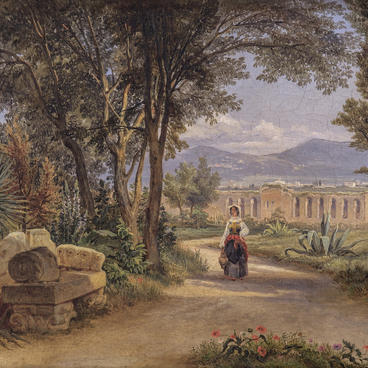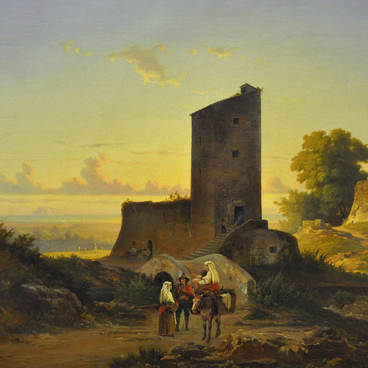The museum’s collection of portraits from the second half of the 18th century includes this poetic image of a noble lady. This is Yekaterina Melgunova, a lady-in-waiting at the court of the Russian Empire and the daughter of Senator Aleksey Melgunov. The portrait is not signed, but based on its stylistic features, it is attributed to the academician of painting Leonty Miropolsky, a follower of the school of Dmitry Levitsky. In the late 18th century, Leonty Miropolsky enjoyed great success in St. Petersburg society, but over time, he was almost forgotten.
Leonty Semyonovich Miropolsky was a Russian portraitist, copyist, and icon painter. He studied at the Imperial Academy of Arts in St. Petersburg. In 1779, he received the title “appointed academician”, and in 1794, he became a full member of the Academy. He received numerous commissions from the Academy to create portraits and other images. He was particularly famous for his portraits of children. Researchers note the stylistic similarities between the works of Leonty Miropolsky and those of his teacher Dmitry Levitsky.
Leonty Miropolsky excelled as a copyist and iconographer. He painted icons for St. Andrew’s Cathedral in Kronstadt, which was demolished during Soviet times. The cathedral is known for its connection with St. John of Kronstadt, who worked there as a priest for 53 years. “Portrait of Melgunova” is a chamber portrait created during this time. This type of portrait is distinguished by a simple background that emphasizes the absolute trust between the artist and the model.
Yekaterina Melgunova was the only daughter of Senator Aleksey Melgunov and his wife Natalya Saltykova. She was married to Lieutenant General Count Dmitry Volkonsky. After her elder brother Vladimir Melgunov died without producing offspring, she inherited the Sukhanovo estate near Moscow. In 1847, Yekaterina Melgunova became a Dame of the Order of St. Catherine and, in 1848, a lady-in-waiting. In St. Petersburg society, she was known as “la tante militaire” (“military aunt”). She had great influence at the Russian court. Yekaterina Melgunova lived to an old age, died in 1853, and was buried on her estate.


